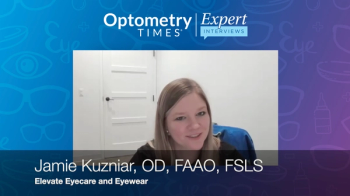
Generics improve compliance in glaucoma patients
Compliance is a common concern with glaucoma patients, but a study recently published in Ophthalmology found that generic medication may help increase adherence, possibly due to lower cost.
Ann Arbor, MI-Compliance is a common concern with glaucoma patients, but a
Name-brand prostaglandin analogues (PGAs) often cost significantly more than their generic counterparts, and researchers suspected the high price may have an effect on compliance. When the first generic PGA, latanoprost (branded as Xalatan, Pfizer), debuted in the U.S. in 2011, it was priced to save a patient $1,300 per year over name-brand products.
“For patients who appear to be struggling with taking their medication as directed, switching to generic formulations whenever possible may help improve their adherence,” says Joshua Stein, MD, MS, lead author on the study, exclusively speaking to Optometry Times.
Related:
Researchers at the University of Michigan Medical School and University of Michigan College of Pharmacy examined data from 8,427 glaucoma patients for the 18 months before and after latanoprost became available. All of the study participants were taking name-brand PGAs prior to the availability of generic latanoprost, but after the generic drug’s introduction, some stayed on the name-brand medications while others shifted to the generic drug.
Study results
Researchers found that while medication adherence improved on average among all patients who were switched to generic latanoprost, those who were on name-brand PGAs, such as bimatoprost (Lumigan, Allergan) and travoprost (Travatan, Alcon), experienced a greater improvement. Among those who had switched from bimatoprost, medication adherence rose from 47 percent of the time to 61 percent of the time, on average. For those who had switched from travoprost, the average adherence rose from 43 percent of the time to 54 percent of the time.
Related:
For patients who had suboptimal adherence prior to the availability of a generic option, the researchers identified several factors associated with an adherence improvement of 25 percent or more-including higher prescription copays prior to the introduction of generic latanoprost or lower prescription copays after the introduction. Researchers speculate that the lower cost of the generic may be the primary reason for the improvement.
"Optometrists should consider changing non-adherent patients to generic medications," says Optometry Time Editorial Advisory Board member Kathy Yang-Williams, OD, FAAO. "Reducing the cost of copays might encourage patients who would otherwise fail to fill their prescriptions to consider more regular treatment. Mnay patients with glaucoma suffer from other health conditions as well
"These patients may have limited funds available for their copays or medications. If we can decrease the financial burden of treatment for this chronic disease, then patients might reassess their prioritization of glaucoma management," she says.
The study also found improved adherence among African-American patients who switched to generic drugs. It noted that African-Americans tend to have more severe glaucoma compared to other ethnicities-meaning a more complex medication regimen, which affects both cost and adherence.
Optometry Times Editorial Advisory Board member Michael Chaglasian, OD, FAAO, says, “While branded medications have several advantages, if a patient can’t afford the significantly higher co-payment, then he won’t take it. I see this in my practice every day.”
Optometry Times Editorial Advisory Board member Ben Gaddie, OD, FAAO, agrees that cost likely has an effect on compliance.
"However, not all patients are successful on generic PGAs and the payor's strategy regarding no coverage for branded PGA's hurts the patient's that need it the most," he says. "There needs to be a reasonable mechanism to obtain overrides when generic medications fail. This process is becoming increasingly cumbersome with most commercial payors."
Another perspective
Optometry Times Editorial Advisory Board member Jim Thimons, OD, FAAO, says he saw some significant flaws with the study, the first of which was the population researchers chose to study.
“The study excluded everyone who was well-behaved,” he says. “With any study, you want a natural population, but researchers skewed the population and set themselves up for the answer they wanted.”
Dr. Thimons noted that adherence increases whenever you switch a patient to a different medication, regardless of whether it is branded or generic. A better way to test this theory would be to switch some of the name-brand users to a different brand and assess adherence.
“I don’t think the data supports the outcome in the way they presented it. The concept of switching to a less expensive drug could influence people’s behavior, but I think you would need to look at it for a longer period of time to make that conclusion,” he says.
Newsletter
Want more insights like this? Subscribe to Optometry Times and get clinical pearls and practice tips delivered straight to your inbox.













































